What a difference a few months can make; a Tasmanian berry grower was challenged by the coldest Novembers in memory, but now that has turned into an "exceptional" summer.
Ground temperatures at The Westerway Raspberry Farm, in the Derwent Valley, were falling in the middle of spring, at a time when they should have been rising, which slowed plant growth and nutrient uptake - delaying the season by two and a half weeks. But owner Richard Clark says within a matter of weeks this changed.
"By around the 10th of December it became a really nice and mild summer," Mr Clark said. "What can happen is that you have a late start to the season, and then you get consecutive 30-40-degree days, and it compresses the season a lot. But we haven't really had that heat; we've had a lot of days in the 20s and for a raspberry farm, that is marvellous. We've had good quality fruit, good size, good quantity, and very few mould pressures, which you can have as an outdoor raspberry farm. Generally, the plants are quite healthy."
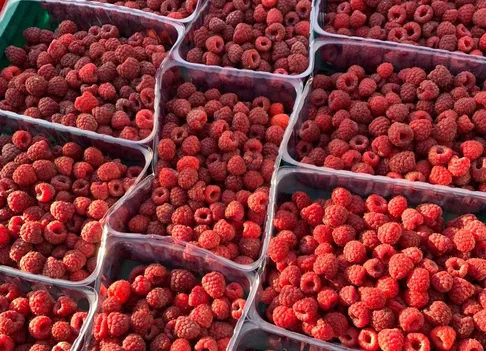
The improved growing conditions came as visitors began returning to fruit farms across the island state, following bushfires that ravaged large swaths of pristine forests and world heritage areas in January 2019. Mr Clark says, fortunately, his farm was not directly affected, but the impacts kept people away.
"It did scare away our tourists, which happens and is fair enough," he said. "I feel sorry for those directly affected from these fires, just like to the ones on the mainland this year. For us in the Derwent Valley, once the smoke went, we were back to business; nothing was damaged, nothing was burned - but the customers and the tourists still stayed away, because people thought the whole of Tasmania burnt. This year we have had brilliant visitor numbers. The carparks have been full, from December 20th until last week when people started going back to work. It's been exceptional summer trade at our farm gate."
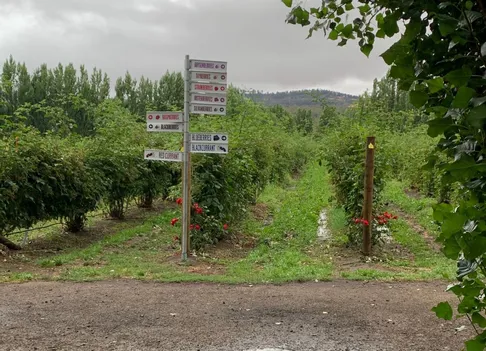
Agritourism is a big part of fruit and vegetable businesses in the Derwent Valley, and near-by Huon Valley, which both rely on farmgate sales. However, Mr Clark says one of the reasons that it was able to pull through in a good position is because it is diversified.
"We do everything from mechanical harvesting, through to farmgate and tourism experiences," he said. "So, normally, when one thing isn't working for us, something else hopefully is. That gets us through the tough times. We also have around 150 cows and 1,500 sheep, seed crops, and a strawberry runner and pine seedling nursery. All those things mean that, while we love our tourists and they provide high-margin sales, our other sides of the business are high volume, low margin sales."
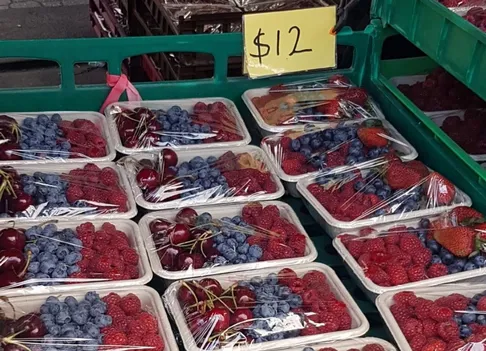
Mr Clark found that this year there was a particularly high demand for raspberries before Christmas in Tasmania, because a lot of other fruit was late, and there was not a lot of cherries around. He believes that his business provides "an authentic experience" for local, interstate and international tourists, which is what ultimately drives visitations in the region.
"When they come onto our farm, they get to run around; pick their own fruit, there's tractors around, there's other pickers around, there's machines working - it’s an operational farm, we just open up the front paddock for pick your own," Mr Clark said. "When you see families wandering around, it is almost like an amusement park, saying things like: 'Are we going to pick blueberries first or go on the log ride?' Maybe with the decreasing number of family-owned farms, and greater urbanisation, there's less of those possibilities to connect to where their food comes from. families may spend $20-$30 picking a whole heap of berries, and they get sunshine, smiles and berry juice on their fingers. It's really joyous to see, and as a farmer you feel you are doing something worthwhile."
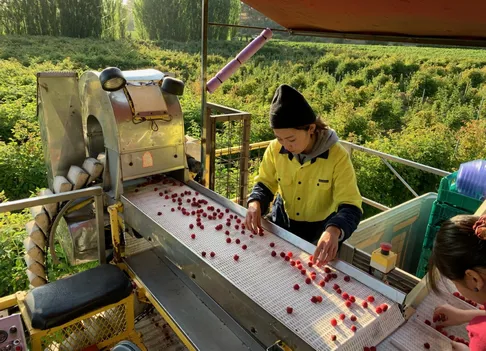
In recent years, Westerway Raspberry Farm has been trialling and introducing a biodegradable punnet, made out of sugarcane by-products. Since then, it has become mandatory at some farmers markets around the state, and while the family-owned business did it voluntarily for environmental and ethical reasons, Mr Clark says he is proud to be at the 'vanguard' and help other businesses make the switch.
"The wider and broader rollout of compostable containers is heartening for us to see that we were involved in the early stages in Tasmania," Mr Clark said.
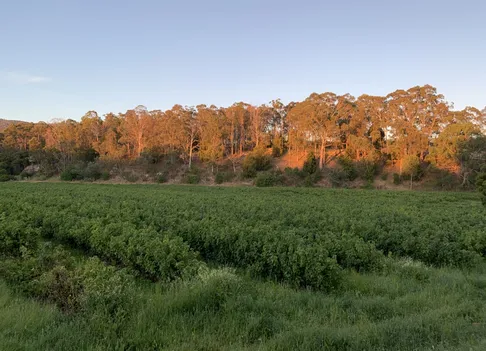
But it is not just packaging where the business is reducing waste and increasing returns, but Westerway Raspberry Farm is also working with other local growers to turn both blueberry and strawberry lower-class fruit into concentrates.
"We have been working with CUB for the past 22 years, making raspberry and blackcurrant concentrate," he said. "Two years ago, we made a strawberry concentrate for a customer that wanted to use Australian ingredients, to replace an imported concentrate. As we had reasonable success with that, this year we made a blueberry concentrate - so we converted 20 tonnes of blueberries, from a local Tasmanian Farm, which was waste and destined for landfill. We have diverted over 100 tonnes of strawberries from landfill to concentrates over the past two summers. It has been used by Australian manufacturers for jams, ice creams and beers. We are very excited to see where else our berries may end up."
For more information:
Richard Clark
Westerway Raspberry Farm
Phone: +61 438 254 376
westerwayraspberryfarm@hotmail.com
www.lanoma.com.au
